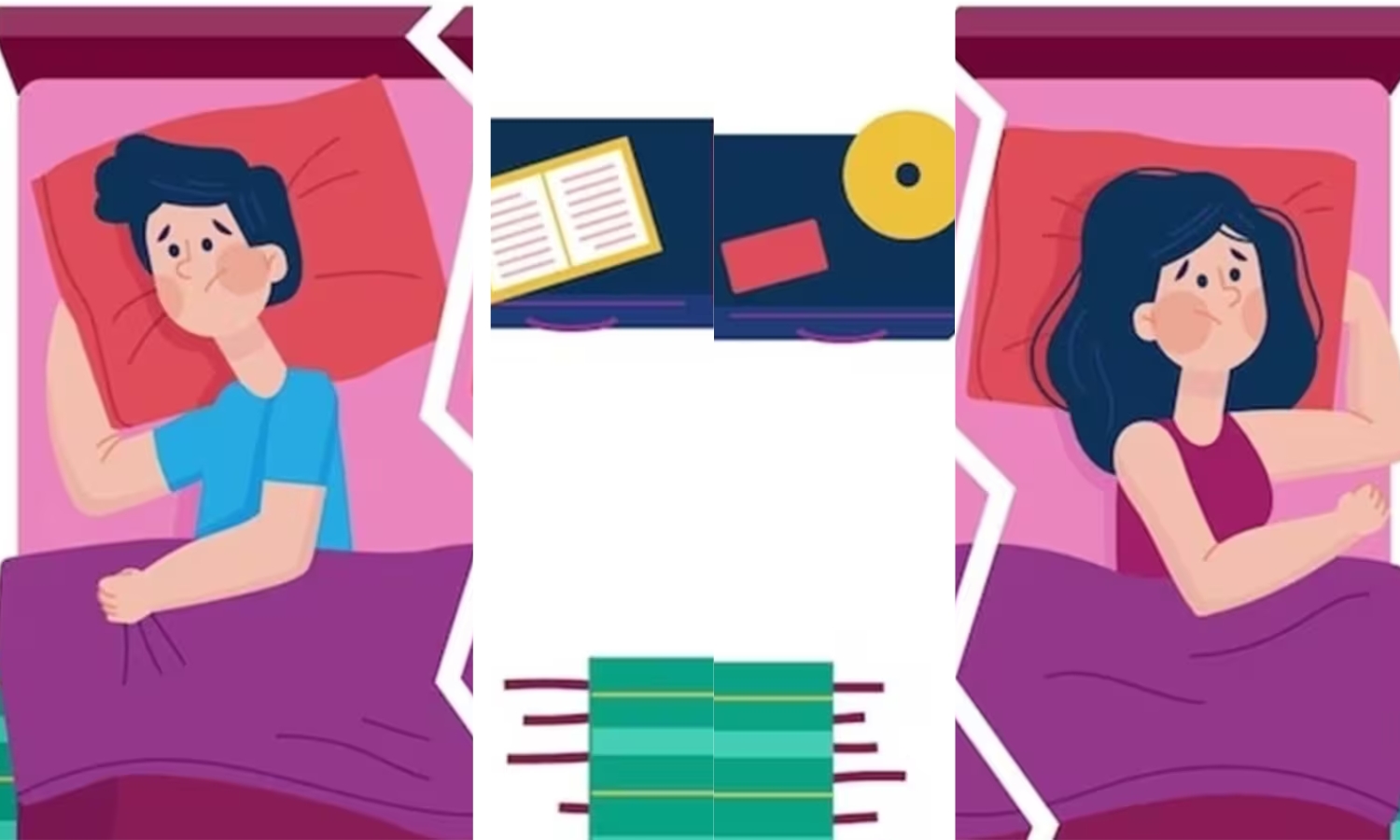In a growing trend reshaping traditional notions of bedtime rituals, an increasing number of couples are opting for a “Sleep Divorce” to improve their quality of rest and foster greater harmony in their relationships.
The practice, characterized by partners choosing to sleep in separate beds or rooms, is gaining traction as couples seek solutions to common sleep-related issues such as snoring, tossing and turning, and differing sleep schedules. By embracing a sleep divorce, individuals aim to create personalized sleep environments that cater to their specific needs, ultimately enhancing their overall sleep experience.
Research into the phenomenon reveals promising outcomes, with couples who adopt a sleep divorce reporting significant improvements in sleep duration and quality. Studies indicate that partners who sleep separately enjoy an average of 37 minutes more sleep per night, leading to feelings of increased alertness, vitality, and overall well-being.
However, the decision to pursue a sleep divorce is not without its considerations. While some couples find solace in the restorative benefits of sleeping apart, others may grapple with feelings of loneliness or disconnection resulting from physical separation during the night.
Furthermore, societal attitudes and cultural expectations surrounding sleeping arrangements within romantic relationships may influence individuals’ perceptions of the practice. Despite its potential benefits, the concept of a sleep divorce may be met with skepticism or concern by those who view shared sleeping as an integral aspect of intimacy and closeness in a relationship.
As couples navigate the complexities of modern-day sleep dynamics, effective communication and mutual understanding emerge as crucial pillars for maintaining emotional connection and intimacy. Whether through shared or separate sleeping arrangements, prioritizing open dialogue and mutual respect remains essential for fostering relationship harmony and addressing individual sleep needs.
While the concept of a sleep divorce challenges conventional norms, its rise underscores a broader shift toward prioritizing self-care and well-being within romantic partnerships. As couples explore innovative strategies to optimize their sleep routines, the embrace of a sleep divorce reflects a growing recognition of the multifaceted nature of sleep and its profound impact on overall health and relationship dynamics.
